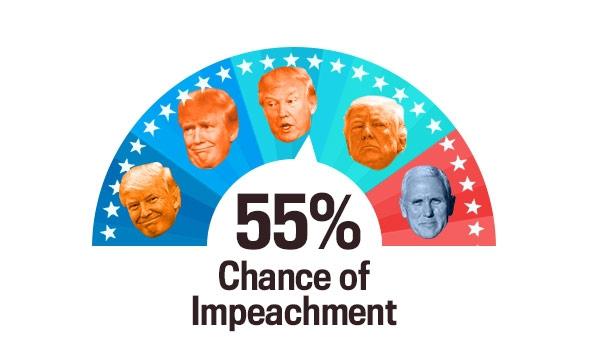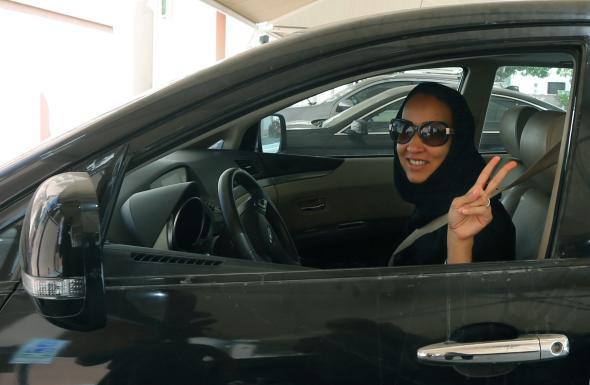The Impeach-O-Meter is a wildly subjective and speculative daily estimate of the likelihood that Donald Trump leaves office before his term ends, whether by being impeached (and convicted) or by resigning under threat of same.
On Tuesday, in America, much of the conversation was not about making great leaps or strides of progress as a country, but about making underrepresented Americans whole. Black NFL players have been protesting the structural injustices faced by black Americans for more than a year now. Our debilitating American president entered the fray and now we are talking about how those players may and may not “appropriately” demonstrate their frustration and anger, rather than the injustice itself. In Puerto Rico, the President’s casual response to the hurricane devastation in the country gives the impression that the three-and-a-half million residents of the U.S. territory are not a priority and the road to repairing and rebuilding, to making their lives whole again, will be a long one. Both instances show the potential of President Trump to deflect, redirect, and obfuscate what was once clear and right, such that we’re bogged down simply trying to get back to the starting line, much less aspiring to great change.
Tuesday in Saudi Arabia, however, was a day of seismic change. The ruler of the ultraconservative kingdom King Salman ruled through a royal decree that the prohibition on women driving will be lifted. As a result, by June of 2018, women will be able to get a driving license in the last country in the world in which they were not allowed to do so solely based on their gender. The move was in some respects practical, as placing impediments on half of a country being able to work seemed less feasible without oil money oozing from everywhere. But to say this change was the result of shifting economic fortunes or the sheer beneficence of a more forward-looking, liberal regime now in place is to underestimate the bravery of generations of women who protested, got in cars to drive anyway, and often paid a cruel price. In 1990, Saudi Arabia’s first protest over the driving ban saw 47 women drive around the capital of Riyadh against the Kingdom’s laws; the women were arrested and some lost their jobs. Many more women have engaged in acts of civil disobedience by simply getting behind the wheel at great personal cost.
What does today’s awakening in Saudi Arabia mean for the longevity of the Trump presidency? Perhaps not much, directly. Saudi Arabia is still far from a fair or just country, particularly for women, and while Tuesday’s victory does not correct every injustice there, it shows that great leaps of progress are still possible—anywhere.

Photo illustration by Natalie Matthews-Ramo. Photos by Chip Somodevilla/Getty Images, Win McNamee/Getty Images, Chris Kleponis-Pool/Getty Images, Drew Angerer/Getty Images, and Peter Parks-Pool/Getty Images.
